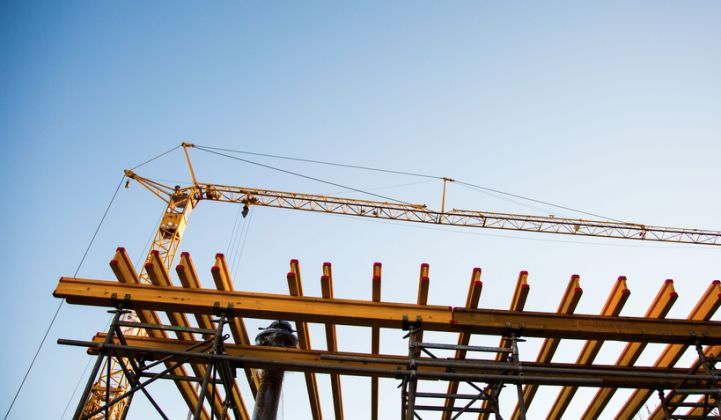The industrial giant Siemens has announced a €10 million (USD $12 million) investment in the Swedish battery manufacturing venture Northvolt.
Siemens said in a press release that the agreement would include equipping Northvolt’s upcoming lithium-ion gigafactory with an enterprise IT platform to enable “the digitization of the entire value chain, from the design of the battery cell to production and services.”
The partnership will also see Siemens becoming a Northvolt battery customer once the gigafactory begins operating in 2020.
The "digital enterprise" system will support everything from manufacturing planning and design software to automation, including industrial communications networks and cloud solutions, Siemens said.
“Siemens sees the Northvolt initiative as a reference project for the battery production of the future,” according to the company.
Cutting-edge IT is viewed as an important ingredient in helping gigafactories achieve the efficiency levels needed to deliver rock-bottom battery prices.
In 2016, Tesla purchased German manufacturing automation specialist Grohmann Engineering in a bid to improve the efficiency of its operations, although more recently Tesla’s CEO, Elon Musk, admitted he had invested too heavily in robots at his Model 3 production line.
Northvolt’s CEO, former Tesla supply chain vice president Peter Carlsson, also favors an IT-heavy production system.
The potential for Siemens to show off its industrial digitization system at Northvolt, in return for a long-term battery supply contract, was likely a big factor in the deal.
Norhvolt has managed to pull in significant levels of big-name funding since it emerged from stealth mode in 2016. Investors so far include ABB Technology Ventures, Vestas, Scania, and Swedish power company Skellefteå Kraft.
Northvolt has also received funding from the Swedish Energy Agency and the European Investment Bank.
The company claims to be planning Europe’s largest lithium-ion factory, with capacity for production of 8 gigawatt-hours of batteries a year upon commissioning. By 2023, the company plans to have extended production capacity to 32 gigawatt-hours a year.
This month, Northvolt broke ground on a site in the municipality of Skellefteå, in the north of Sweden. But when the factory opens it will be entering an increasingly crowded battery market.
Benchmark Mineral Intelligence, a London-based analyst firm, predicts the number of gigafactories in Europe will more than have doubled in five years’ time, from three today to seven in 2023.
As well as existing facilities belonging to AESC in the U.K., Samsung SDI in Hungary and LG Chem in Poland, gigafactories are being planned by GSR Capital in Sweden, Terra E Holding in Germany and SK Innovation in Hungary, according to Benchmark.
The gigafactory build-out will give Europe 17 percent of the world’s lithium-ion manufacturing capacity by 2023, Benchmark estimates. That will be far behind China’s 53 percent share but on par with the rest of Asia and slightly ahead of North America, with 14 percent.
Only four gigafactories are expected in North America in 2023. Three of these — the Tesla Gigafactory, LG Chem’s facility in Michigan and AESC’s factory in Tennessee — are already operational.
The fourth is under development by Imperium3 New York, which in February picked up the manufacturing assets of ill-fated lithium-ion hopeful Alevo.
Overall, Benchmark expects 36 new gigafactories to take shape worldwide between now and 2023, on top of the 25 already in operation. There will be 470 gigawatt-hours of lithium-ion battery production a year in place.
As GTM reported, Tesla is due to announce a combined battery production and vehicle assembly Gigafactory in Shanghai, China next month. A European gigafactory announcement may come by the end of the year, with the location as of now undecided.
Construction of Tesla’s existing Gigafactory in Nevada will continue for at least the next four or five years, Musk has said.




